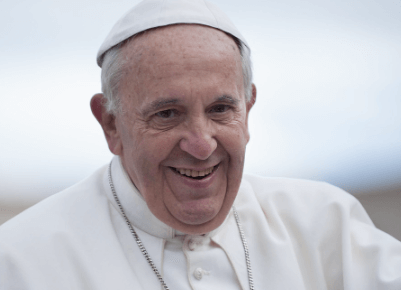Portrait:3ypen-E54kq= Pope Francis

Pope Francis, a figure of considerable influence in contemporary Catholicism, represents a unique intersection of faith and social activism. His background in Argentina and the Italian heritage he carries inform his vision of a world grounded in justice and environmental consciousness. Through notable encyclicals such as “Laudato Si'” and “Fratelli Tutti,” he articulates a compelling narrative that challenges both individual and collective responsibilities. Yet, as he grapples with pressing global issues like nationalism and climate change, one must consider how his leadership will shape the future of the Church and its role in societal transformation.
Early Life and Background
Born on December 17, 1936, in Buenos Aires, Argentina, Jorge Mario Bergoglio, who would later become Pope Francis, was shaped by a diverse cultural and familial background.
His family upbringing, steeped in Italian heritage, instilled values of compassion and community.
These cultural influences, coupled with the socio-political climate of Argentina, fostered a deep sense of empathy and social justice that would define his future leadership.
See also: Portrait:3jezch9rpyo= Photography
Key Encyclicals and Teachings
Pope Francis has profoundly influenced contemporary Catholic thought through a series of key encyclicals that address pressing global issues.
His papal encyclicals, such as “Laudato Si'” and “Fratelli Tutti,” emphasize the interconnectedness of humanity and the environment, offering moral teachings that advocate for ecological responsibility and universal fraternity.
These documents challenge believers to embrace a more compassionate, just, and sustainable world.
Social Justice Advocacy
A central pillar of Pope Francis’s papacy is his unwavering commitment to social justice advocacy, which seeks to address the systemic inequalities and injustices prevalent in society.
His approach integrates faith-based initiatives with community engagement, empowering marginalized voices.
Challenges and Future Directions
Navigating the complexities of contemporary society, Pope Francis faces significant challenges that threaten to undermine his vision for social justice and equity.
Issues such as rising nationalism, climate change, and economic inequality demand robust global leadership.
Additionally, fostering interfaith dialogue remains crucial for bridging divides and promoting understanding.
The Pope’s future directions must emphasize collaboration and solidarity to achieve enduring social transformation.
Conclusion
In a world yearning for leadership, Pope Francis stands as a beacon, advocating for unity amidst rampant individualism. While addressing climate change and social inequities, the pontiff exemplifies the irony of a humble shepherd in a society that often prizes self-interest over collective welfare. Perhaps the true miracle lies not in the papal robes, but in the audacity to challenge the status quo, inviting the faithful to reimagine a world where fraternity is not merely a slogan, but a lived reality.




